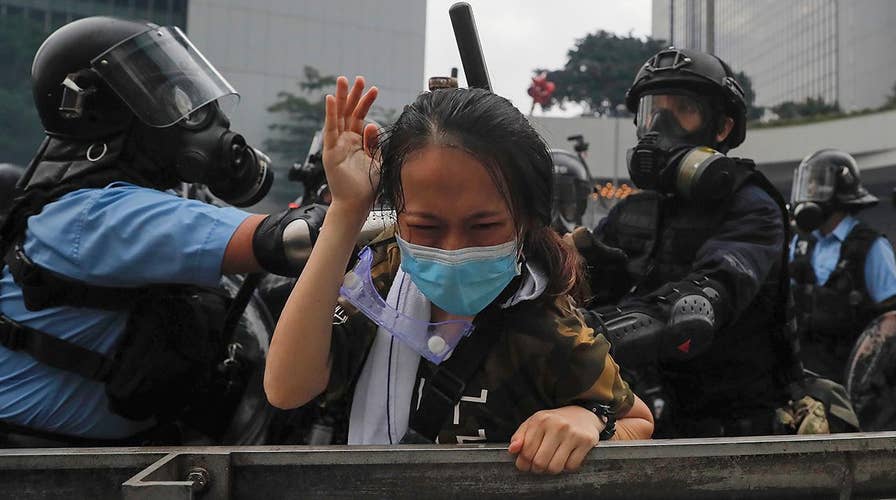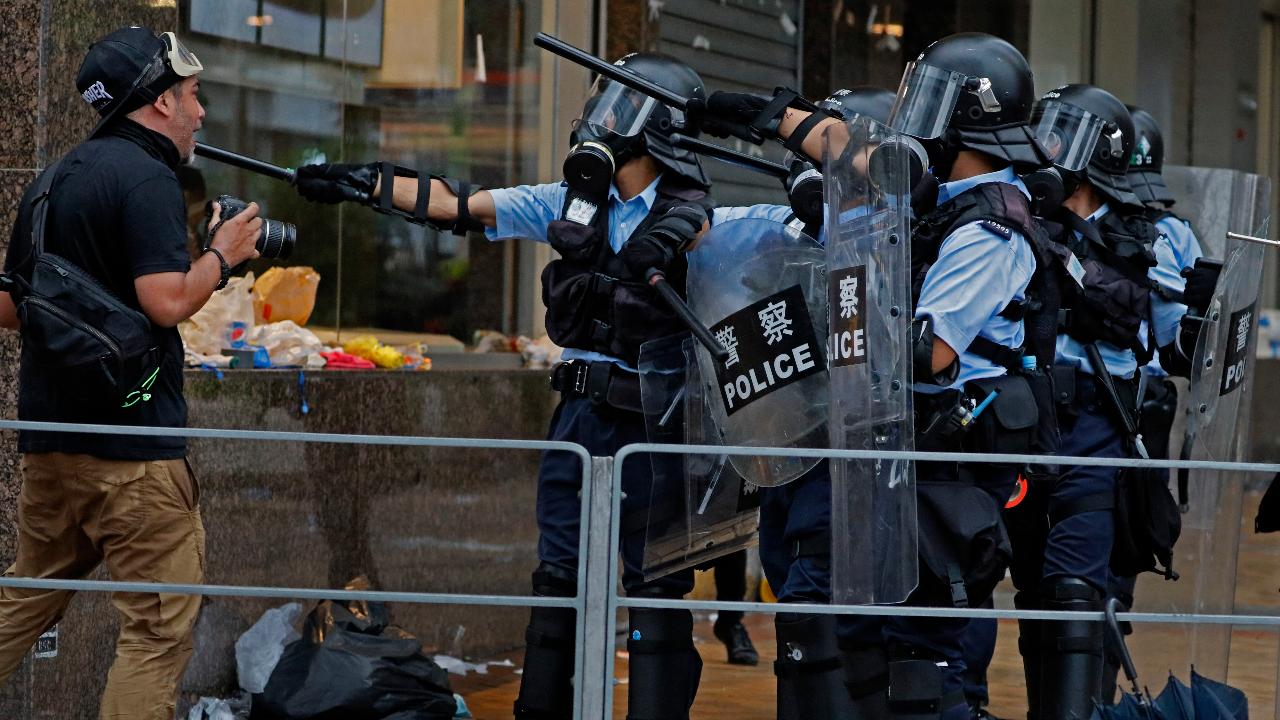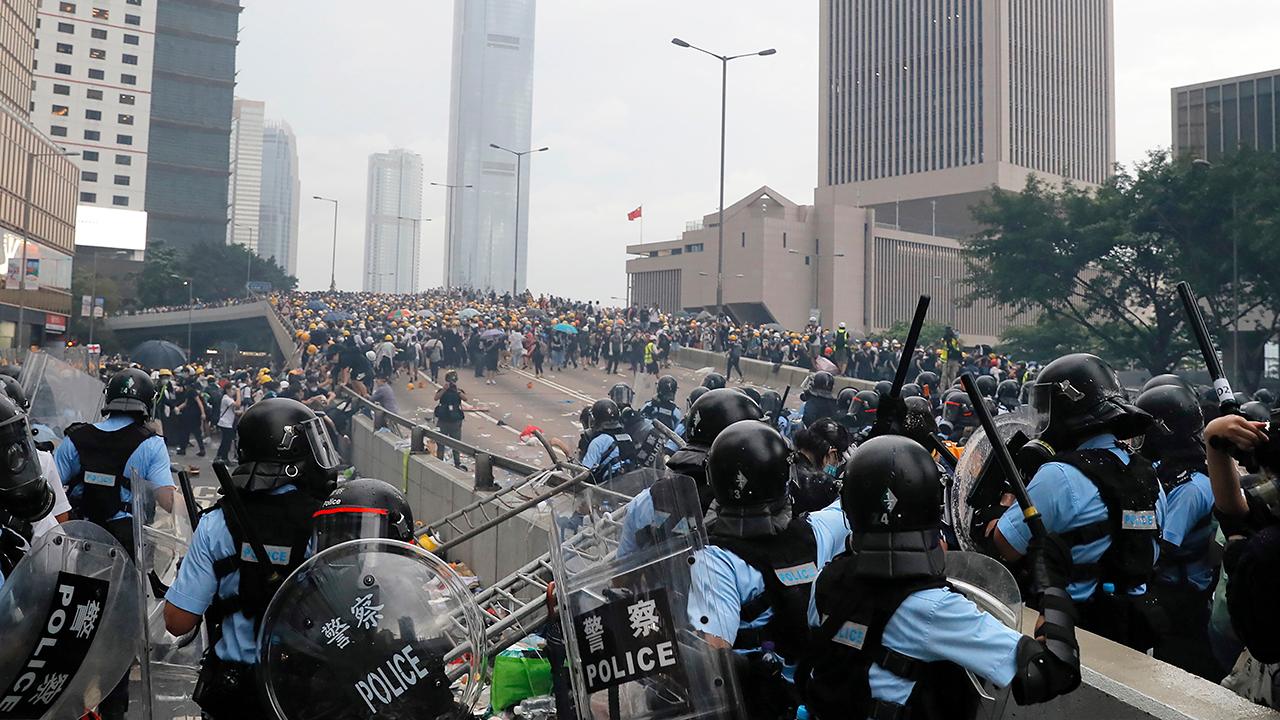Hong Kong suspends meetings over extradition law that sparked violent protests
Leaders in Hong Kong are considering their next move after thousands of protesters filled the streets over a controversial extradition bill; Benjamin Hall has the latest.
The embattled leader of Hong Kong apologized over the handling of a controversial extradition bill after hundreds of thousands of people took to the streets Sunday as outrage over the legislation continues to boil over.
Hong Kong Chief Executive Carrie Lam apologized to the people with “utmost sincerity and humility” after massive crowds jammed the city's streets for a second Sunday in a row in a vehement show of opposition to the legislation that has stoked fears of expanding control from Beijing in the former British colony.
"The government understands these views have been made out of love and care for Hong Kong," according to a statement from an unidentified government spokesman.
HONG KONG SUSPENDS CONTROVERSIAL EXTRADITION BILL AFTER THE BIGGEST PROTESTS IN YEARS
Hong Kong residents have been outraged over the proposed extradition bill that would allow people to be sent to mainland China for trial, with many fearing the bill would threaten civil liberties and an independent judicial system that were promised for 50 years when communist-ruled China took control in 1997.

Tens of thousands of protesters march through the streets as they continue to protest an extradition bill, Sunday, June 16, 2019, in Hong Kong. (AP Photo/Kin Cheung)
"The chief executive admitted deficiencies in the government's work had led to substantial controversies and disputes in society, causing disappointment and grief among the people," a government spokesman said. "The chief executive apologized to the people of Hong Kong for this and pledged to adopt a most sincere and humble attitude to accept criticisms and make improvements in serving the public."
Lam, who was chosen by Beijing to be the highest-level local official, suspended her effort to force passage of the bill on Saturday in an attempt to quell protests.
But pro-democracy activists say that's not enough, instead demanding the proposal be withdrawn in addition for calls that Lam step down.
“She should have apologized for not improving people’s livelihood. She should resign,” music teacher Chau Chong told the South China Morning Post. "But sadly, we know that even if she does step down, Beijing will just find another puppet to run Hong Kong.”
Well after dark on Sunday, crowds gathered outside the police headquarters and Lam's office. The crowds filled a wide thoroughfare and side streets paralleling the waterfront of Victoria Harbor as tourists and shoppers who drive much of the Asian financial hub's economy looked on.
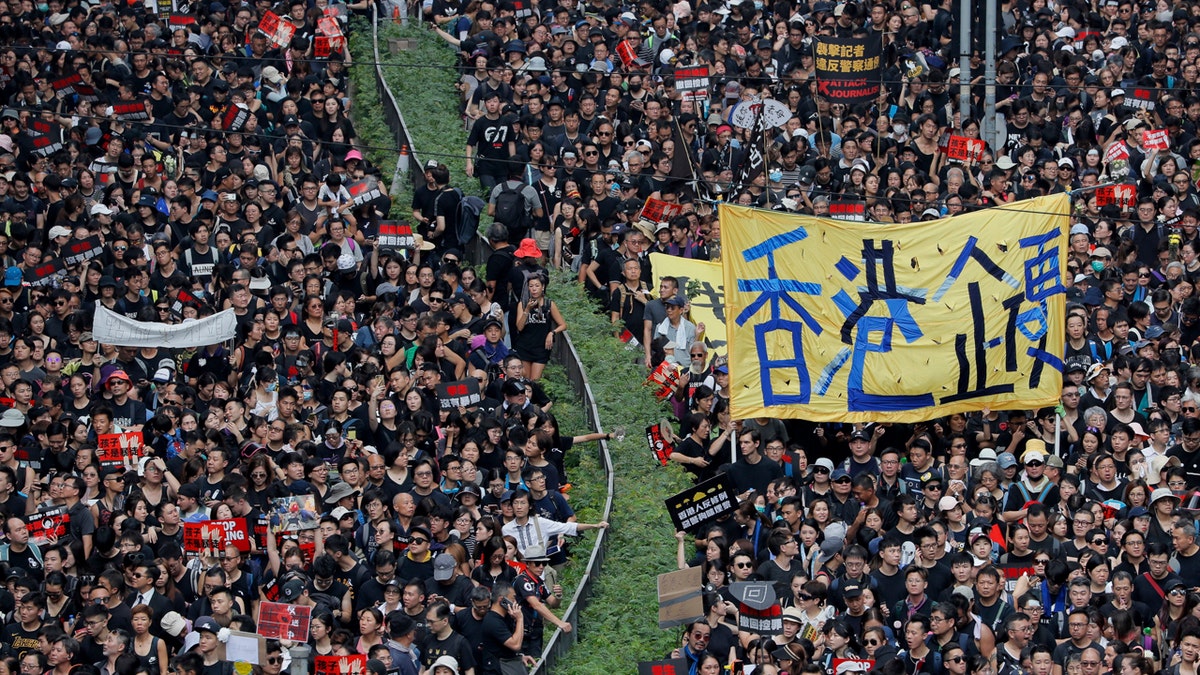
Tens of thousands of protesters march through the streets with a banner reading "Hong Kong stand firm" as they continue to protest an extradition bill, Sunday, June 16, 2019, in Hong Kong. (AP Photo/Kin Cheung)
"Our demands are simple. Carrie Lam must leave office, the extradition law must be withdrawn and the police must apologize for using extreme violence against their own people," bank worker John Chow said as he marched with a group of his friends. "And we will continue."
Protesters have mainly focused their anger on Lam, who had little choice but to carry through dictates issued by Beijing, where President Xi Jinping has enforced increasingly authoritarian rule. There has also been anger over the way police used tear gas, rubber bullets and other forceful measures as demonstrators broke through barricades outside the city government's headquarters in that smaller but more aggressive protest.
The police presence Sunday was considerably more relaxed, with officers deployed mainly to direct traffic as the protesters wound their way through Hong Kong's commercial center from a sprawling downtown park to government headquarters, according to the Associated Press.
Pro-democracy activists were calling for a general strike on Monday despite Lam's decision to suspend work on the legislation. Some labor unions, teachers associations and other groups were planning boycotts of work and classes, demanding the Lam administration retire the proposed amendments and not bring them up again for passage at a later stage.
"We encourage all the public to carry on the campaign," said Bonnie Leung, a leader of the pro-democracy group Civil Human Rights Front. "If any new violence takes place, it will be the responsibility of the police."
CLICK HERE FOR THE FOX NEWS APP
After Lam announced she was suspending the legislation to avoid more violence and allow additional debate, Chinese government officials issued multiple statements backing that decision. Lam, however, made clear she was not withdrawing it. She has also sidestepped questions over whether she should quit and also defended how the police dealt with last week's clashes with demonstrators.
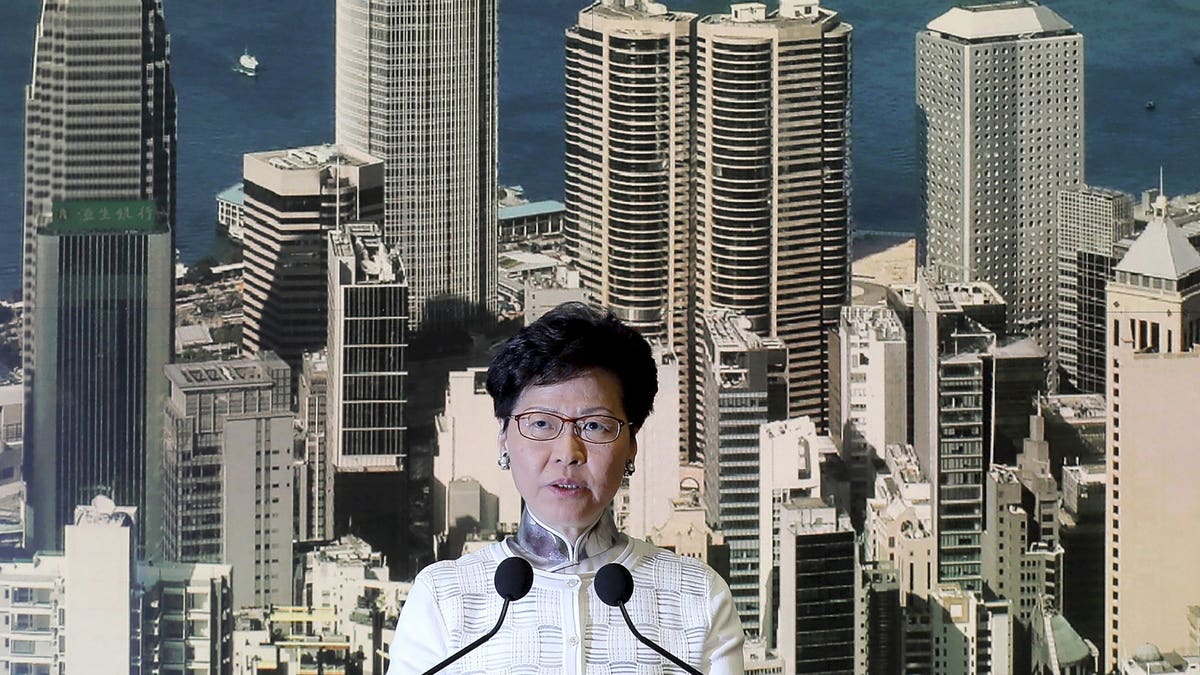
Hong Kong's Chief Executive Carrie Lam arrives holds a press conference in Hong Kong on Saturday, June 15, 2019. Lam said she will suspend a proposed extradition bill indefinitely in response to widespread public unhappiness over the measure, which would enable authorities to send some suspects to stand trial in mainland courts. (AP Photo/Kin Cheung)
Lam maintains that the extradition legislation is needed if Hong Kong is to uphold justice, meet its international obligations and not become a magnet for fugitives. The proposed bill would expand the scope of criminal suspect transfers to include Taiwan, Macau and mainland China.
"China just wants to turn Hong Kong into another Chinese city," Alex To told the AP. "Carrie Lam is just a figurehead. Everything depends on the attitudes of the leaders in Beijing."
The Associated Press contributed to this report.
